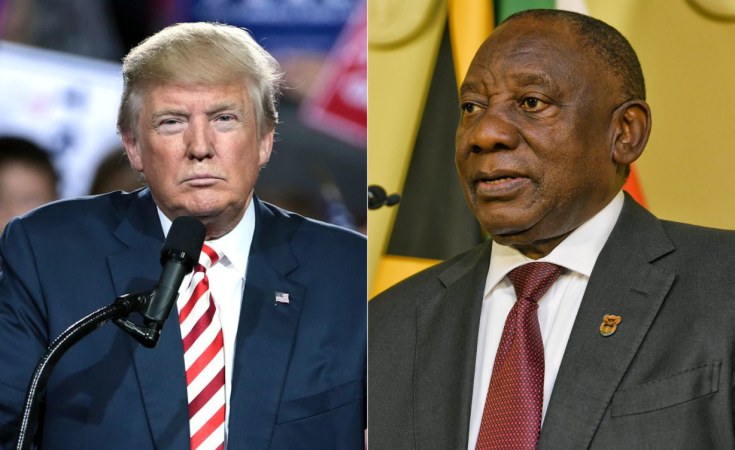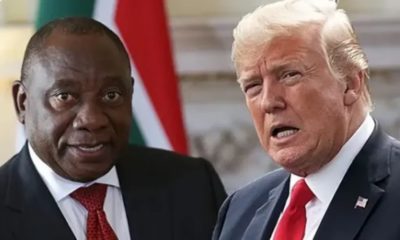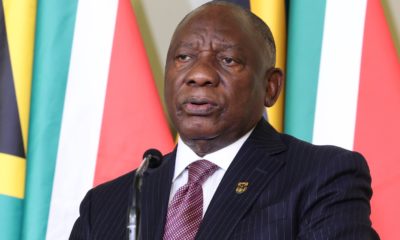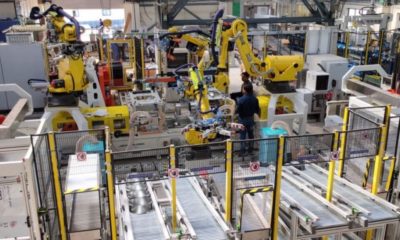Business
Ramaphosa Calls for Calm as US Tariffs Threaten South African Jobs

A warning from Tokyo
Speaking in Japan after the Tokyo International Conference on African Development, President Cyril Ramaphosa gave South Africans a measured but sobering update. The United States’ decision to slap heavy tariffs on South African exports would hurt agriculture and manufacturing the most, but he insisted that it was not the end of the road.
“Sometimes out of chaos comes opportunities,” Ramaphosa said, pointing to new interest from other markets eager for South African products. He noted that the government had already set in motion diversification strategies, re-establishing trade offices and support desks to reduce over-reliance on the US.
Japan steps forward
Ramaphosa’s visit to Japan was timely. The country is already a major trading partner, importing platinum, coal, manganese, titanium, iron ore, and agricultural products like Rooibos tea, wine, avocados, and citrus. More than 270 Japanese companies already employ over 200,000 South Africans, and the president sees scope for more in areas such as automotive components, renewable energy, hydrogen technologies, and digital industries.
Japan’s Prime Minister Shigeru Ishiba recently signalled openness to adjusting tariffs for countries hit by US measures, which Ramaphosa described as an encouraging sign. For a South Africa in search of fresh partners, the timing could hardly be better.
The industries under pressure
Yet behind the optimism, the economic reality is stark. Chief economist Frederick Mitchell of Aluma Capital warned that the sectors already under strain will feel the pinch first.
Agriculture has seen a 26 percent rise in exports to the US in the three months before the tariffs, totalling $161 million. Those gains could vanish if alternative markets are not secured quickly. On the manufacturing side, vehicle exports are particularly vulnerable. Companies like Mercedes-Benz South Africa rely heavily on American buyers, and their competitive edge is at risk once tariffs are enforced.
The Eastern Cape, the heart of vehicle manufacturing, lost 36,000 manufacturing jobs in the second quarter alone. If tariffs erode demand further, closures and deeper job losses could follow.
Ripple effects for the economy
Economists also warn of wider consequences. Weaker exports could slow economic growth, push the rand down, and drive inflation up as import costs rise. This, in turn, could force the Reserve Bank into tighter monetary policy, making life more expensive for South African households already stretched by living costs.
Mitchell pointed out that diversifying exports is the right path, noting South Africa’s recent agreement with China to ship stone fruits like peaches, nectarines, plums, and apricots. But he cautioned that the true test will come over the next six to twelve months, when the global trade landscape adjusts to Washington’s tariffs.
A balancing act ahead
For South Africa, the challenge is balancing short-term pain with long-term opportunities. Ramaphosa is betting on deeper partnerships in Asia, Africa, and beyond to soften the blow. But for workers in the Eastern Cape’s assembly lines or farmers shipping fruit across the globe, the immediate worry remains the same: survival in an uncertain trade climate.
Also read: New law set to change how Uber and Bolt operate in South Africa
Follow Joburg ETC on Facebook, Twitter, TikT
For more News in Johannesburg, visit joburgetc.com
Source: Business Tech
Featured Image: allAfrica.com



























